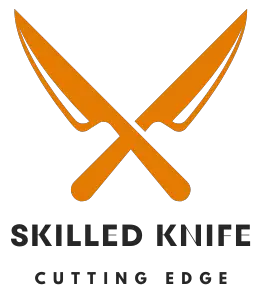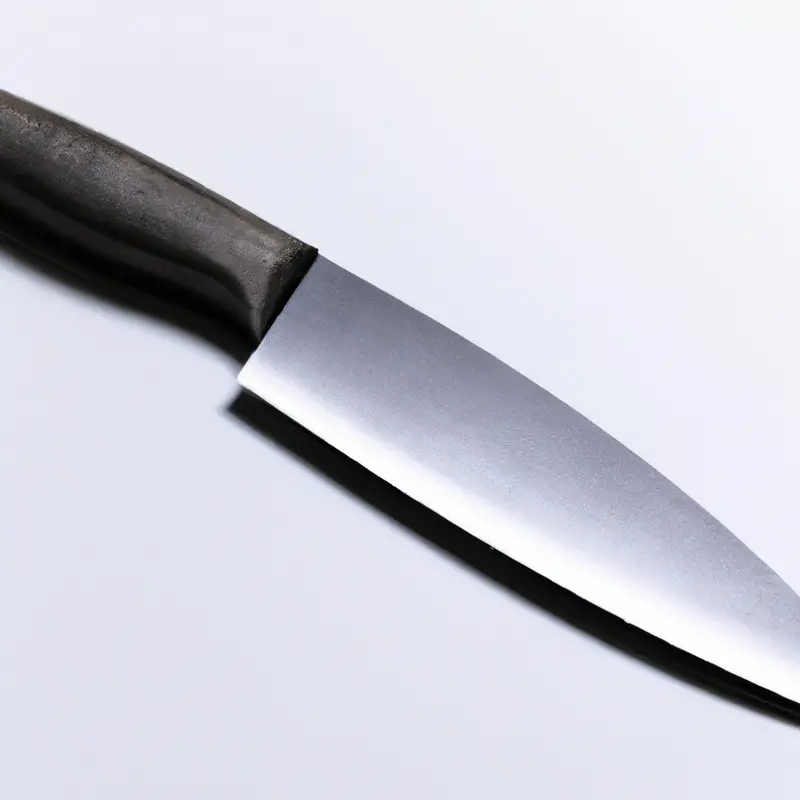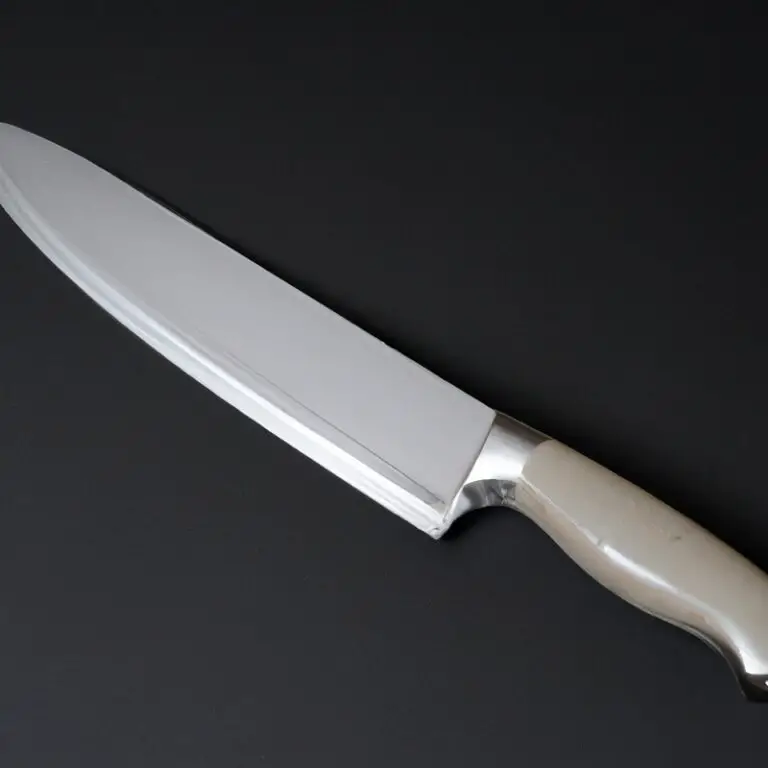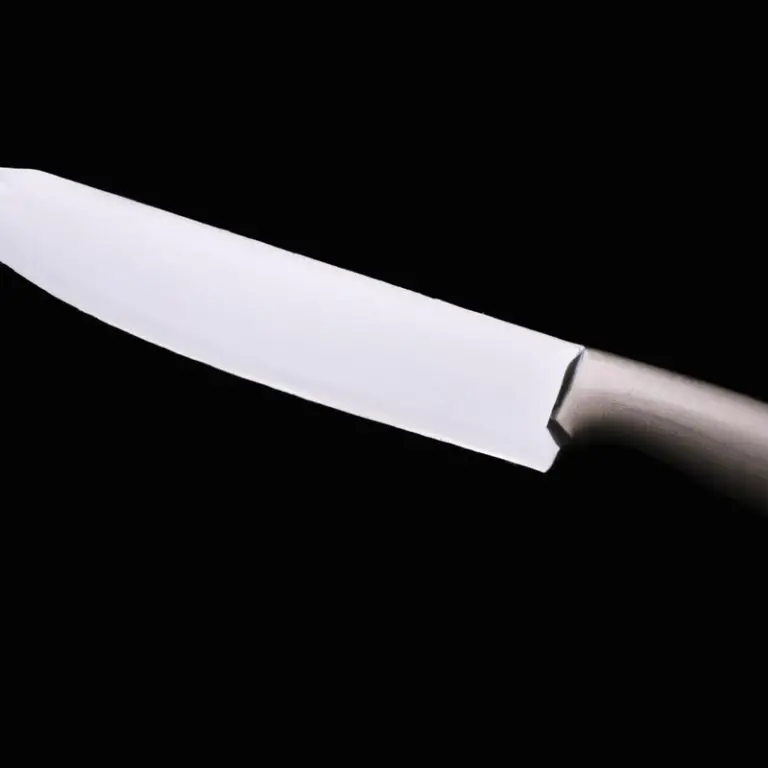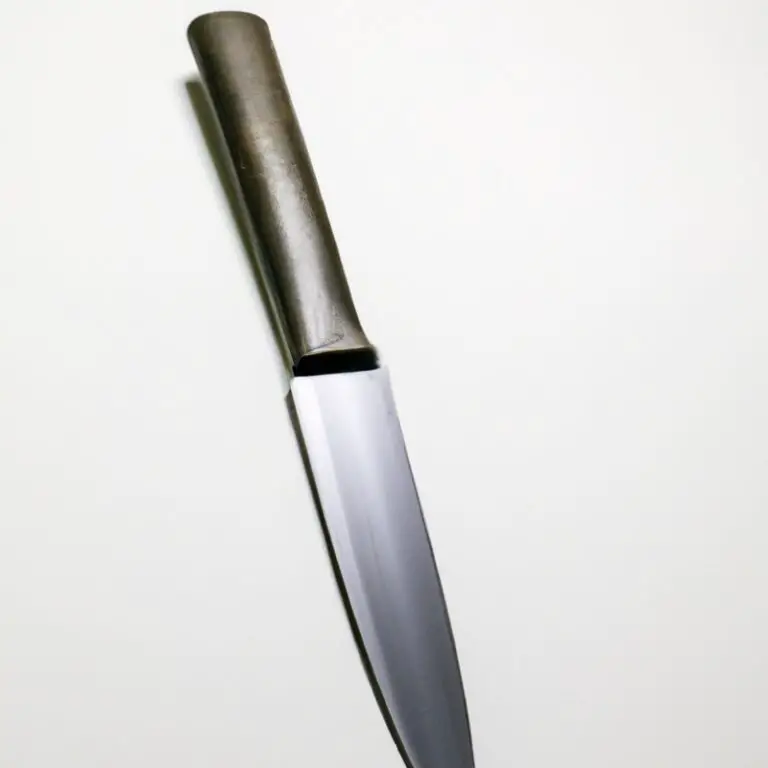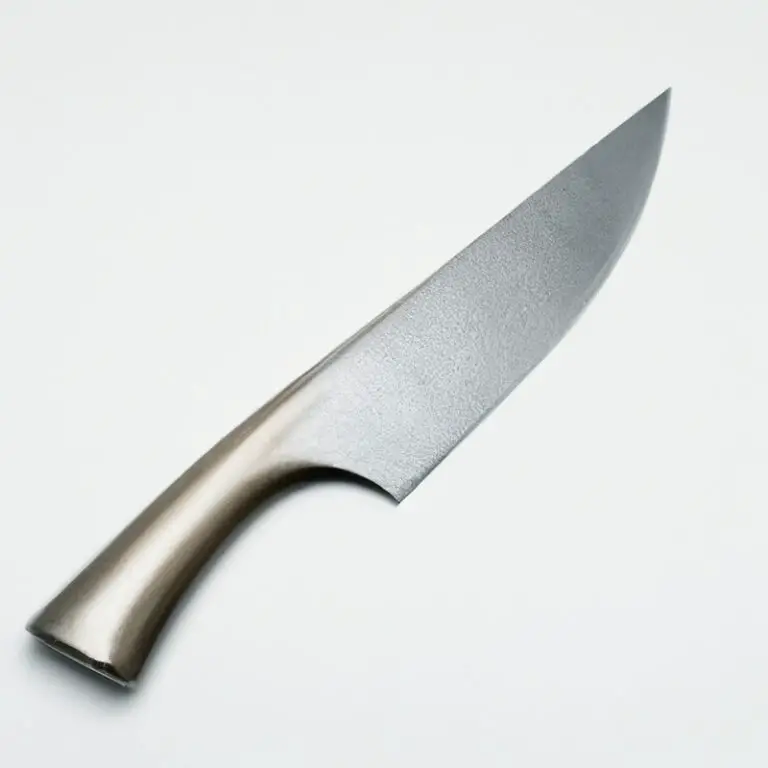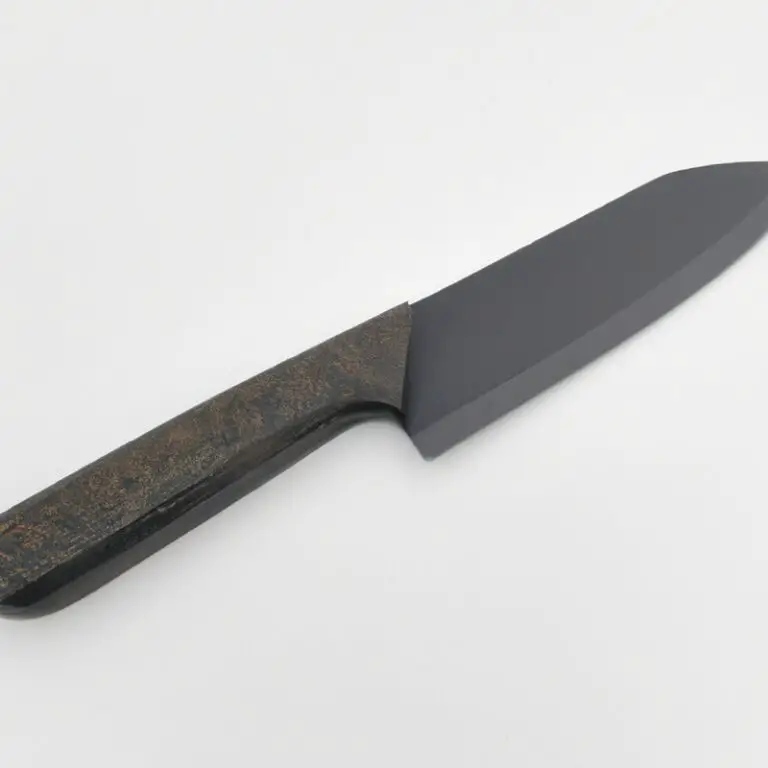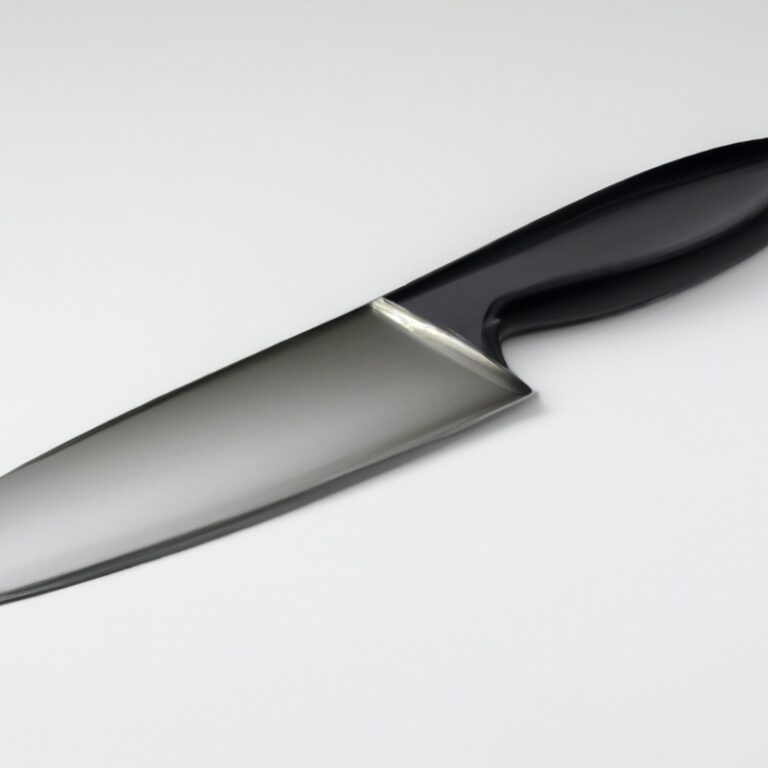What Are The Advantages Of Using a Bamboo Cutting Board With Gyuto Knives? Slice Smarter
Key Takeaways:
- Bamboo cutting boards are environmentally friendly and durable, making them an ideal choice for use with Gyuto knives.
- Bamboo cutting boards are gentle on knife edges and can help to prolong the life of Gyuto knives.
- Bamboo’s natural antimicrobial properties make bamboo cutting boards a hygienic choice for food preparation with Gyuto knives.
- Using a bamboo cutting board with Gyuto knives can enhance the flavor of food, due to the material’s natural ability to resist absorption of moisture and odors.
If you’re looking to enhance your kitchen experience and take your cooking skills to the next level, a bamboo cutting board with a Gyuto knife might just do the trick. As someone who’s been cooking for years, I cannot overstate the importance of a high-quality cutting board and a reliable knife.
In this blog, I will explain why bamboo is the best material for cutting boards, the benefits of a Gyuto knife over other knives, and how a bamboo cutting board can affect its performance.
We’ll also delve into the hygiene, durability, and eco-friendliness of bamboo boards. Stay tuned!
| Advantages | Description |
|---|---|
| Bamboo is a sustainable material | Bamboo is fast-growing and does not require pesticides or fertilizers, making it a more environmentally friendly choice compared to traditional hardwoods. |
| Bamboo is gentle on knives | Bamboo has a softer surface compared to other materials, which means less wear and tear on the blade of a Gyuto knife, helping it retain its sharpness for longer. |
| Bamboo is easy to clean | Bamboo is non-porous and less likely to harbor bacteria, making it easier to clean and maintain hygiene in the kitchen. |
| Bamboo is lightweight and durable | Bamboo is strong and durable yet lightweight, making it easy to handle and maneuver in the kitchen. |
Why bamboo is the best material for cutting boards in general
Bamboo is considered the best material for cutting boards due to its numerous benefits. Firstly, bamboo is harder than most hardwoods, which makes it durable and resistant to scratches and cuts.
Secondly, bamboo is lightweight, making it easy to move around and store.
It is also non-porous and has natural antibacterial properties, making it more hygienic compared to other materials. Thirdly, bamboo is a sustainable material as it grows and replenishes rapidly.
Bamboo cutting boards do not dull knives and are easy to maintain.
Therefore, bamboo is the perfect material for cutting boards in general.
The benefits of using a Gyuto knife over other kitchen knives
Gyuto knives have several benefits that make them stand out over other kitchen knives. One of their main advantages is their versatility.
They are multi-purpose knives that can handle a variety of cutting tasks, including slicing, dicing, and chopping vegetables, fruits, and meats.
Their sharp and thin blades allow for precision cuts, making them a top choice for professional chefs and home cooks alike. Additionally, Gyuto knives are lightweight and easy to handle, reducing the potential for wrist and hand fatigue during extended cutting sessions.
They are also made with high-quality, durable materials, such as carbon steel and stainless steel, which ensures longevity and reliability.
Furthermore, Gyuto knives have a distinctive design that sets them apart from other kitchen knives. They have a unique shape that combines the features of Western and Eastern knives, making them suitable for a diverse range of cutting techniques.
Overall, using a Gyuto knife can enhance the precision, versatility, and ease of use of your cutting tasks, making them a valuable addition to any kitchen.
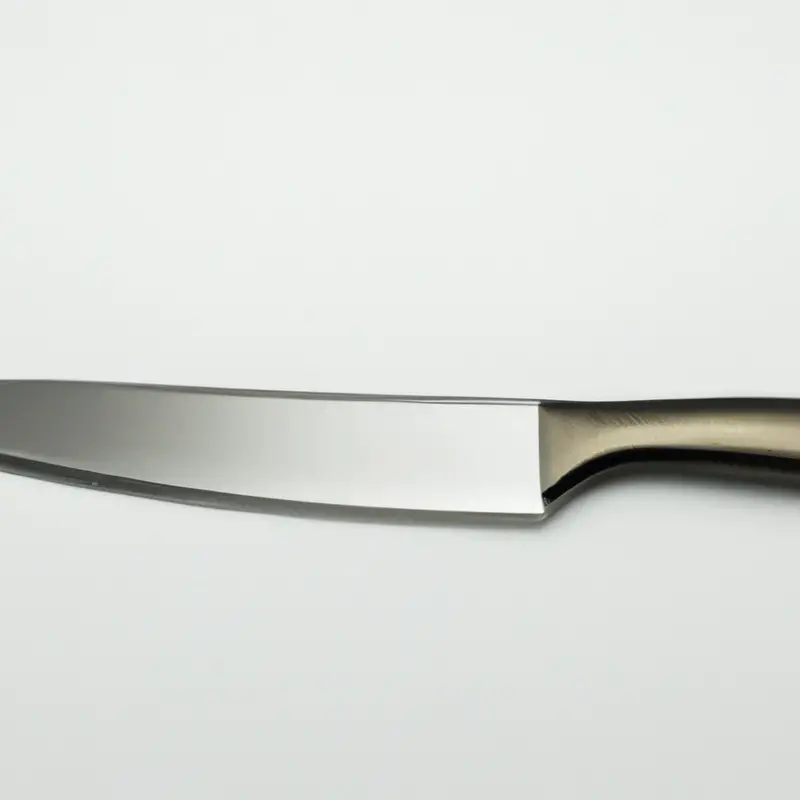
How bamboo cutting boards affect the performance of a Gyuto knife
Bamboo cutting boards enhance the performance of a Gyuto knife by providing a tough, yet gentle cutting surface. The hardness of bamboo boards minimizes dulling, while their natural resilience allows the knife to retain its sharpness for longer.
Additionally, bamboo has a natural self-healing mechanism which leads to fewer nicks and scratches on the surface of the board, further extending the life of the knife.
Bamboo is also resistant to moisture, which reduces the chance of bacterial growth and protects the knife from rust. Overall, bamboo cutting boards provide an ideal surface for Gyuto knives, ensuring optimal performance and longevity.
Bamboo cutting boards are more hygienic than other materials
Bamboo cutting boards are more hygienic than other materials for several reasons. First, bamboo has natural antimicrobial properties that make it resistant to bacteria growth.
This means that bamboo cutting boards are less likely to harbor harmful bacteria that can cause foodborne illnesses.
In addition, bamboo is easier to clean than other materials such as wood or plastic. Its non-porous surface doesn’t absorb liquids and food particles that can lead to bacteria growth.
Simply washing with warm soapy water and drying thoroughly can keep a bamboo cutting board clean and safe to use.
Lastly, bamboo cutting boards are less likely to develop deep grooves or scratches from knife cuts, which can be difficult to clean and harbor bacteria. Overall, bamboo cutting boards offer a hygienic and safe surface for food preparation.
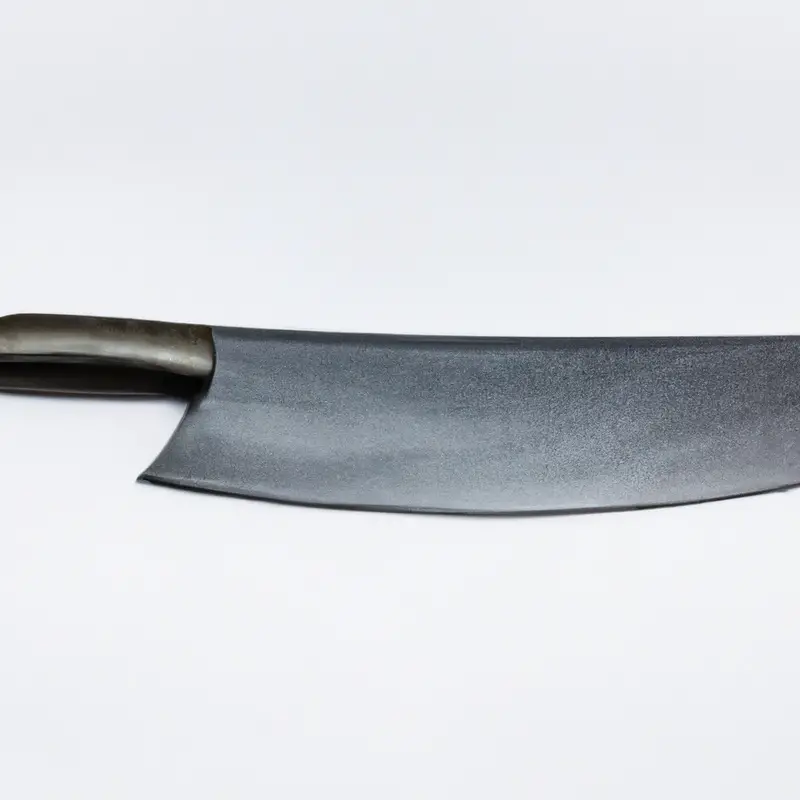
Why bamboo cutting boards are more durable than other cutting board materials
Bamboo cutting boards are known for their durability, making them ideal for home kitchens and professional settings. Unlike plastic or glass cutting boards, which can become scratched and develop deep grooves, bamboo cutting boards are tough enough to withstand heavy use without showing signs of damage.
This is because bamboo is a type of grass that grows quickly and is naturally resistant to moisture and bacteria, which can cause other cutting board materials to deteriorate over time.
Additionally, bamboo fibers are tightly packed and interwoven, creating a hard surface that is less prone to cracking and warping when exposed to changes in temperature and humidity. With proper maintenance, a bamboo cutting board can last for years, making it a smart investment for any chef or home cook.
Benefits of using a bamboo cutting board for meat preparation with a Gyuto knife
One of the significant benefits of using a bamboo cutting board for meat preparation with a Gyuto knife is that it provides a firm and stable cutting surface that will not dull the knife’s edge. Bamboo cutting boards are naturally hard, making them perfect for slicing through various meat textures.
Additionally, bamboo has low water absorption properties, which makes it less susceptible to bacteria growth, reducing the risk of cross-contamination during food preparation.
Bamboo cutting boards are also lightweight and easy to maneuver. This feature comes in handy when working with large cuts of meat or when necessary to transfer the partially sliced meat from the cutting board to another surface.
Unlike traditional wooden cutting boards, bamboo boards are resistant to warping and cracking, making them more durable and suitable for long-term use.
Another distinct advantage of using a bamboo cutting board for meat preparation with a Gyuto knife is that bamboo is an environmentally friendly material. Bamboo is a fast-growing, renewable resource that does not require pesticides or fertilizers to grow, making it an eco-friendly alternative to other cutting board materials like plastic and glass.
Overall, using a bamboo cutting board for meat preparation with a Gyuto knife ensures exceptional performance, durability, hygiene, and efficiency.
Bamboo cutting boards are better for the environment than plastic or glass cutting boards
Bamboo cutting boards are an eco-friendly choice for your culinary needs. They are sustainable, biodegradable, and have a low environmental impact.
Unlike plastic cutting boards made from petroleum-based materials, bamboo is a renewable resource that grows quickly and naturally.
Additionally, bamboo cutting boards are more durable than glass cutting boards, meaning they will last longer and need to be replaced less frequently. When a bamboo cutting board eventually reaches the end of its lifecycle, it can be composted and will naturally decompose in the environment.
In contrast, plastic and glass cutting boards take hundreds of years to biodegrade and can release harmful chemicals into the environment during decomposition.
By choosing a bamboo cutting board, you are not only making a sound environmental choice, but also investing in a high-quality kitchen tool that will serve you well for years to come.
Tips on how to properly care for and maintain a bamboo cutting board
To keep your bamboo cutting board in good condition, follow these tips:
- Clean your bamboo cutting board with warm, soapy water after each use. Avoid soaking it in water or putting it in the dishwasher. Dry it thoroughly with a clean towel.
- Oil your bamboo cutting board regularly with food-grade mineral oil or bamboo oil to prevent drying and cracking. Apply a thin layer of oil with a soft cloth, let it soak in for a few hours, and wipe off any excess oil.
- Use a separate bamboo cutting board for meat and poultry to avoid cross-contamination. Wash it thoroughly with hot, soapy water and sanitize it with a solution of one part vinegar to four parts water.
- Don’t cut hard or frozen foods on your bamboo cutting board, as this can damage the surface. Use a plastic or silicone cutting mat instead.
- Avoid exposing your bamboo cutting board to direct sunlight or extreme temperatures, as this can cause warping and cracking.
By following these simple tips, you can enjoy your bamboo cutting board for years to come and keep it looking and performing its best.
How bamboo cutting boards enhance the overall kitchen experience with a Gyuto knife
Bamboo cutting boards enhance the overall kitchen experience with a Gyuto knife in several ways. Firstly, bamboo boards provide a sturdy and stable surface that reduces the risk of the blade slipping or catching during use, thus allowing for more precision and control in cutting.
Secondly, bamboo’s natural antibacterial properties reduce the risk of cross-contamination, ensuring food hygiene and safety.
Thirdly, bamboo boards are easy to maintain and clean, allowing users to spend less time on upkeep and more time on cooking. Finally, bamboo cutting boards are non-porous, which prevents the absorption of moisture and odors, leading to better-tasting food.
In conclusion, using a bamboo cutting board with a Gyuto knife can make meal prep more efficient, enjoyable, and safe.
Final Verdict
Using a bamboo cutting board with Gyuto knives brings numerous benefits to the kitchen. Bamboo’s strength, durability, and hygienic properties make it an ideal material for cutting boards, while Gyuto knives’ sharpness and versatility are unmatched in the kitchen.
When combined, they create a dynamic duo that enhances the overall cooking experience.
Not only are bamboo cutting boards better for the environment and easier to maintain, but they also help maintain the performance of a Gyuto knife. By prioritizing the use of a bamboo cutting board in your kitchen, you can improve your culinary skills and ensure the safety and longevity of your knives.
Trust in the reliability of this information and start taking advantage of the benefits of bamboo cutting boards with your Gyuto knives today.
